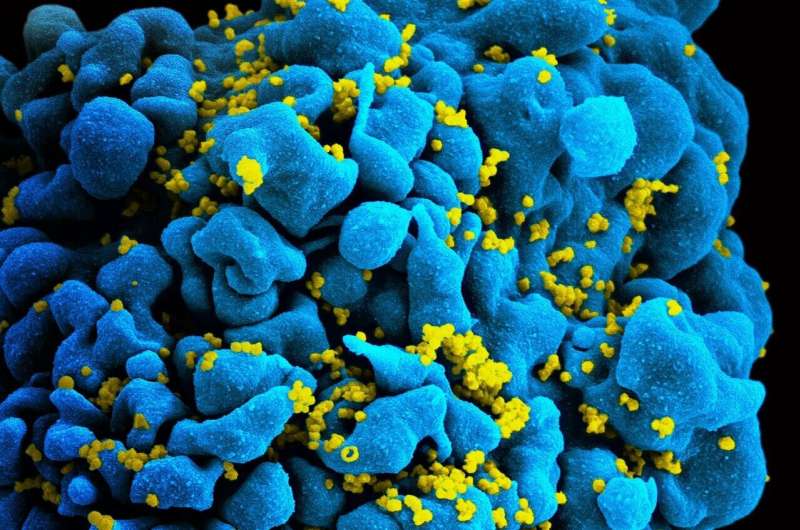Immune-compromised people with HIV, APOE4 gene may have a compounded risk for Alzheimer’s

People living with the human immunodeficiency virus (HIV) who have a history of severe immunosuppression and at least one copy of the Alzheimer’s disease-related gene variant APOE4, might see a compounded adverse effect on the circuitry that impacts memory. This could eventually lead to an increased risk for dementia after age 65, according to Georgetown University Medical Center investigators and colleagues.
The researchers used MRI scans to examine the brain, with a focus on two regions—the hippocampus, which is critical for memory and is often affected in Alzheimer’s disease, and the caudate nucleus, which sits deep in the center of the brain and is often affected in people with HIV. Based on the MRI images, they found that connectivity between the two regions was affected by APOE4 in people with HIV. A history of severe immunosuppression further exacerbated the impact of APOE4.
The finding appears online this month in the journal AIDS.
“We know that the hippocampus plays a critical role in memory and the caudate is a key region involved in HIV-associated neurocognitive disorders,” said Xiong Jiang, Ph.D., an assistant professor at Georgetown who heads the Cognitive Neuroimaging Laboratory. “We wanted to understand whether HIV disease and APOE4 may concomitantly and/or interactively affect these areas of brain function.”
The AIDS crisis began in mostly young men in the early 1980s, and by now nearly half of people living with HIV in the U.S. today are 50 or older. There have been significant advances in therapies for HIV that help account for the older survivors, including a combination antiretroviral therapy, or cART. This therapy stops HIV infection from progressing to full-blown AIDS in many people and transforms HIV-infection from a rapidly fatal illness to a chronic, manageable condition. Despite the advent of cART, people living with HIV can still develop neurological conditions known as HIV-associated neurocognitive disorders. Longevity now poses emerging additional risks related to other brain-related diseases, including Alzheimer’s.
To try to better understand this risk, the researchers recruited 104 people with HIV from the Washington, DC, metropolitan area. To image areas of memory and other brain functions, the clinicians used resting-state functional MRI where no tasks or stimuli were given during the scan.
The investigators found that APOE4 was associated with reduced functional connectivity (the ability of two distinct areas of the brain to communicate) between the hippocampus and the caudate in people with HIV. This reduced functional connectivity was associated with poorer memory function. Importantly, a history of severe immunosuppression led to further reduction in functional connectivity that contributed to reduced memory performance in APOE4 carriers, but not in APOE4 non-carriers. The investigators concluded that a history of severe immunosuppression may compound the effects of APOE4. They also found that executive function, primarily the ability to conduct everyday chores, was not impaired in these same people.
Most treatments in development for Alzheimer’s are focusing on signal pathways related to the hippocampus and associated regions, where new memories are formed and where the earliest signs of the disease are seen. However, in people with HIV, this study suggests that in addition to the hippocampus, the regions they identified, such as the caudate, might need to be considered and included in a treatment plan.
Source: Read Full Article



